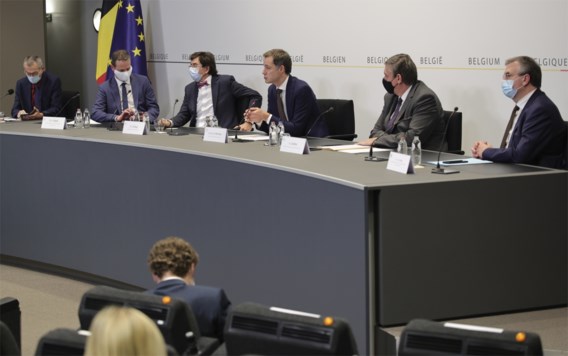The Consultative Committee should have more power in Belgian politics and give the Federal Government decision-making powers when regional governments do not agree, says Egbert Lachaert of the Flemish liberal Open Vld party.
"If the regions cannot agree on a dossier, the Federal Government must be able to make a decision," he said in the local newspaper Krant van West-Vlaanderen on Friday. "The federal level must be strengthened. If not, Belgium will fall apart."
The Consultative Committee "should become the referee" in Belgium's governments, allowing the Federal Government of Prime Minister Alexander De Croo - also a member of the Open Vld party - to decide on a case if the Regions cannot come to an agreement, according to Lachaert.
"The Consultative Committee is the ideal instrument for this," he added.
It brings together federal, regional, and community ministers, and was originally set up to prevent or resolve conflicts of interest or competence between the federated entities and the Federal Government. In recent months, this body has played an important role in managing the health crisis.
Related News
- Flanders won't wait for Brussels to relax rules
- 'Not on the table': Brussels doesn't want different rules to Flanders
Lachaert believes that the federal level has now become a kind of plaything of the other levels of government. "This does not work. The best example is the saga surrounding gas-fired power stations. Is it not unacceptable that one level of government works against another. If that happens, the Federal Government must be able to intervene."
In exchange for an increased federal role in the Consultative Committee, Lachaert is prepared to grant the regions more autonomy. "But without central coordination, the country can no longer function."
Flanders vs Brussels
Lachaert's proposal follows a week of tensions between Flanders' and Brussels' regional governments, as Flemish Minister-President Jan Jambon stated that he does not want to wait for the Capital-Region to catch up with its vaccinations before relaxing coronavirus restrictions.
While 82% of adults in Flanders and 76% in Wallonia have already been fully vaccinated, Brussels continues to lag behind with just 57% of its adult residents fully vaccinated.
“By September, we are going to have 90% of the adult population double vaccinated,” Jambon added. “Tell me: where in the world is the situation better in that respect?”
“At some point, we will have to turn the corner back towards normal life,” his spokesperson Olivier Van Raemdonck said. “If we still cannot go back to normal with 90% of people vaccinated, when will we be able to?”
However, different rules for Flanders and Brussels are currently "not on the table," according to Brussels Health Minister Alain Maron.
“I understand that Flanders wants to reap the benefits of its efforts, but we must do everything we can to limit infections everywhere in the country," he added.
Maron also stressed that the Brussels Government is not against differentiated rules on principle, pointing to the fact that Brussels has been stricter than Flanders for a long time, with an earlier curfew and closing time for bars, as well as the general face mask obligation.
“We are not eager to go in that direction again, but that is a discussion we will have within the government and then within the Consultative Committee,” Maron said.
The Brussels Times

